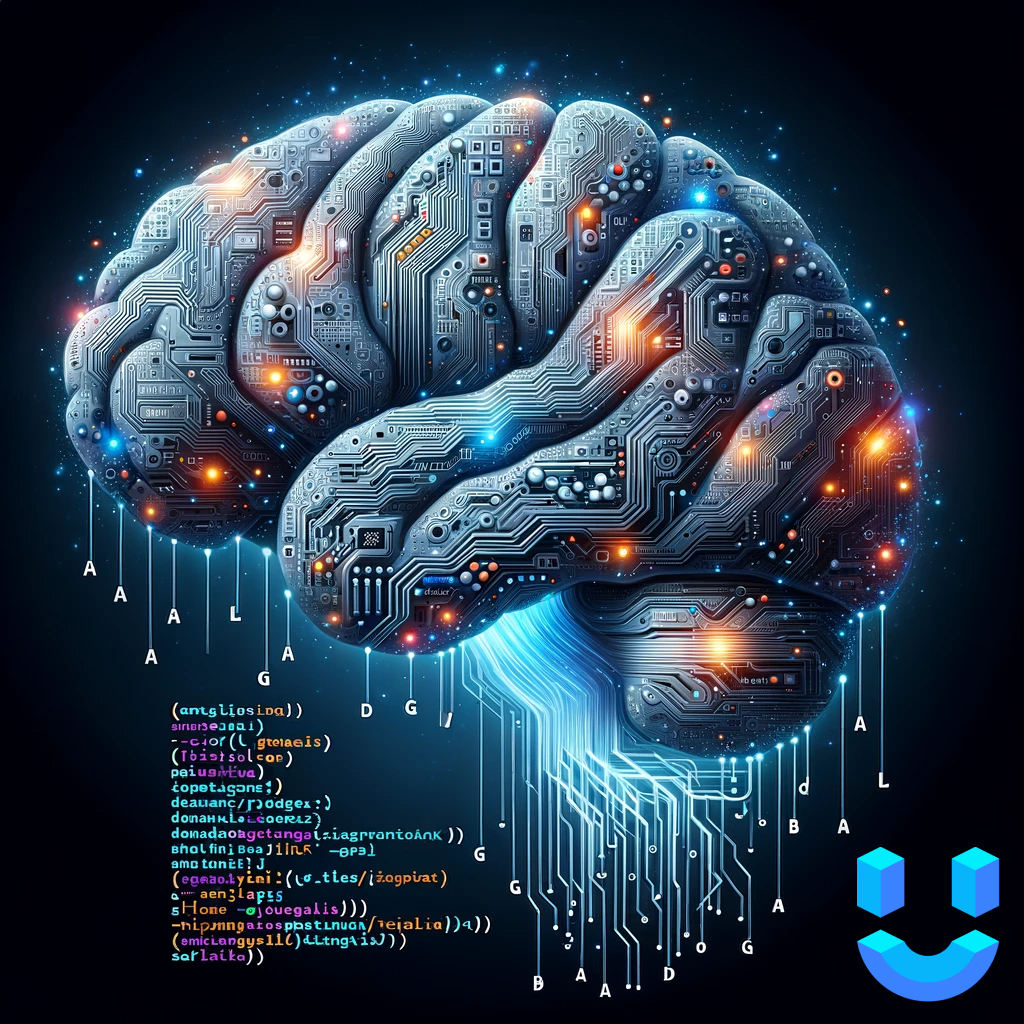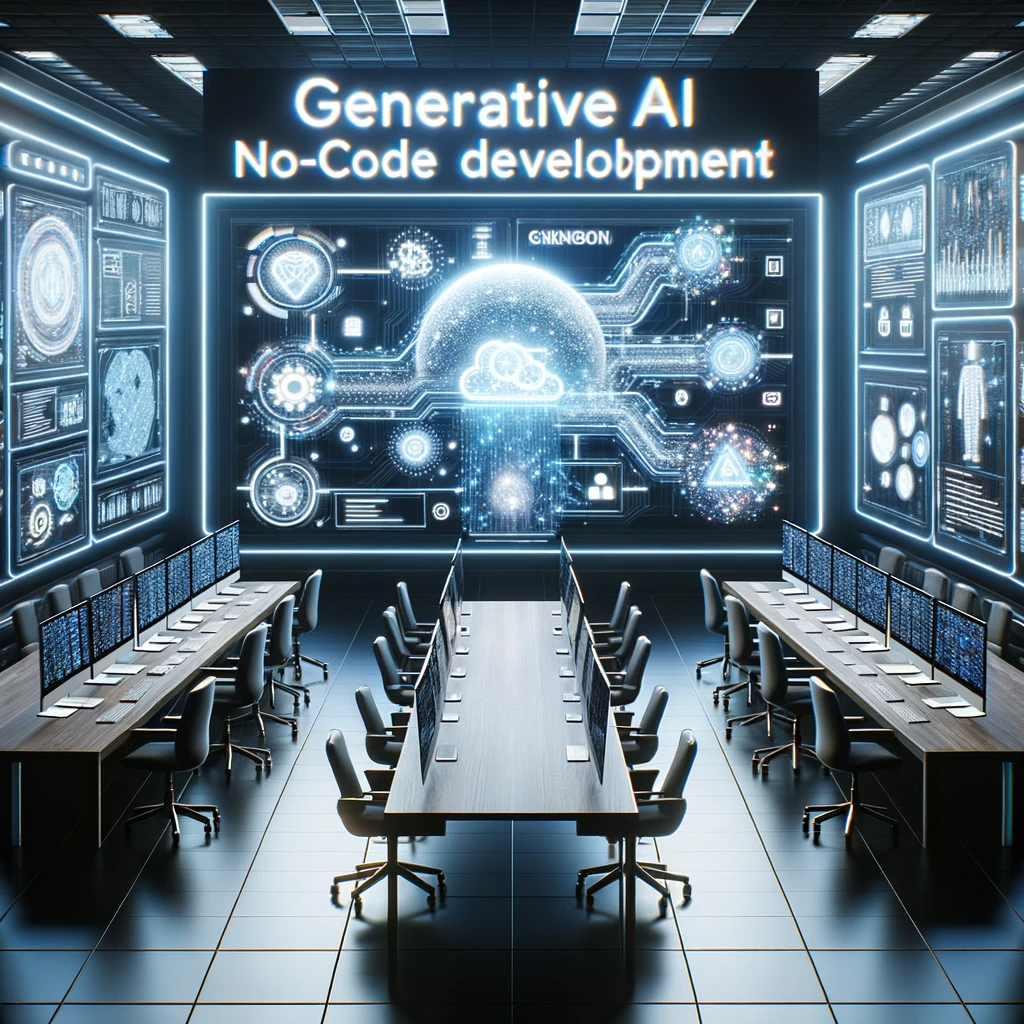- October 13, 2023
- 4 min read
How Generative AI Will Revolutionize No-Code Application Development
The emergence of generative AI models like DALL-E, GPT-3 and Codex have demonstrated the tremendous potential of AI to automate creative and analytical tasks. One field that stands to be disrupted by these models is software development, especially no-code application platforms targeted at non-technical users. In this post we’ll examine how integrations with generative AI can transform no-code app building into a faster, easier and more powerful experience.
Generative AI Automates Coding for Developers
Tools like GitHub Copilot and Anthropic Claude show impressive skill in generating code from high-level descriptions in natural language. They can suggest complete functions, classes, boilerplate templates and more based on a few comments. This makes programming faster by reducing repetitive, low-level coding work.

According to McKinsey, generative AI could improve software engineering productivity by 20-45%. By automating mundane coding, developers are freed up to focus on higher-value design and architecture work. However, generative AI still requires monitoring and expertise to handle the output before integrating it into projects.
No-Code Platforms Abstract Away Coding
In contrast to assisting developers, no-code platforms like Appian, Mendix and UBOS allow ordinary business users to build apps without coding. This is done through intuitive drag-and-drop interfaces with pre-made components and templates. No-code opens up app building to non-developers, but often lacks the depth and flexibility of traditional coding.

Democratizing AI Application Development
In the past, creating custom AI applications required data science expertise and extensive coding skills. Generative AI models like GPT-3 have begun democratizing AI by allowing developers to generate text, code, images and more through simple prompts. No-code development platforms are now integrating these advanced models to make custom AI application development accessible to anyone.

Difference Between Generative AI and No-Code
While generative AI is making strides towards automating coding for developers, no-code application platforms cater to a different audience and use case.
No-code platforms aim to empower citizen developers, business users and non-technical people to build apps. They provide intuitive visual interfaces with pre-built components and templates that can be dragged-and-dropped to assemble applications. This abstracts away the need to write code yourself.
AI chatbot is one example of how pre-built no-code templates harness generative AI to automate complex tasks. With no-code, developers can easily customize and extend these solutions for their specific needs without coding.
On the other hand, generative AI integrates into professional developers’ workflows to enhance their productivity and coding assist with coding tasks. The output still requires skill to mold into a fully-fledged application.
In essence:
- No-code targets citizen developers, and generative AI aims to assist professional developers.
- No-code abstracts away coding, while generative AI generates code.
- No-code eliminates the need to code for app builders, but generative AI output still requires expertise to handle.
So while no-code makes app building accessible to non-developers, and generative AI makes coding faster for developers, they serve different audiences today.
The Future of AI Application Development is AI-Assisted
As generative AI continues progressing, no-code solutions will likely evolve to enable development with little or no human involvement. Soon product managers may simply describe application requirements in plain language, and generative AI will translate descriptions into complete, production-ready apps.
Rather than replacing human developers, AI will augment human capabilities, automate low-value tasks, and enable more people to build apps. With no-code and generative AI, the future of application development looks more productive, creative, and accessible than ever before.
UBOS is leading the way by integrating state-of-the-art generative AI into an easy-to-use no-code platform that makes advanced AI application development possible for everyone. The next generation of apps will be built by humans and AI working together in ways never before possible.
Andrii Bidochko
CEO/CTO at UBOS
Welcome! I'm the CEO/CTO of UBOS.tech, a low-code/no-code application development platform designed to simplify the process of creating custom Generative AI solutions. With an extensive technical background in AI and software development, I've steered our team towards a single goal - to empower businesses to become autonomous, AI-first organizations.

